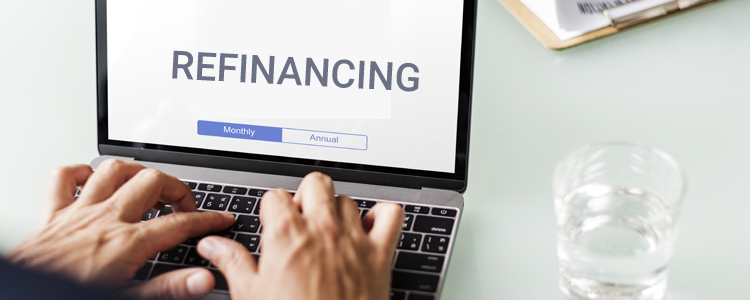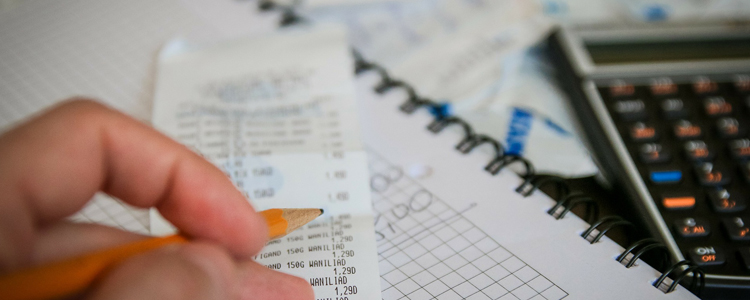If your existing loan that you took out for buying your dream home charges you more than a 2.4% interest, you should know that you are probably paying more than you really should. Do you wish to save some money on your home loan? If the answer is yes, then you should seriously consider refinancing your home loan. In Singapore, refinancing your home loan means that you will essentially be reducing your monthly instalment towards your loan to a lower interest rate. To get this done, you may have to get a new loan package in your bank or may even have to switch to a new bank. Here is everything you need to know about refinancing in Singapore.
Refinancing

Refinancing is nothing but an opportunity where the homeowners can switch their current home loan to a different bank. This is usually done to enable the homeowners to save some money on their home loans. Refinancing is commonly done when you are in the fourth year of your current home loan. You can also choose to refinance after the fourth year too. This is done because the interest rates of the home packages increase after the first three years.
– Lock in periods
Most loans have a lock in period of 2 to 3 years. If you decide to take your loan somewhere else during the lockdown period, you will have to pay a penalty amount. This is done by the bank to ensure that the business they are doing with you is meaningful to them. The penalty amount can be 1.5 to 2 percent of the amount you still have to pay back to the loan and it can be a huge amount. In most circumstances, it is unwise to go for refinancing during the lock in period.
– Interest review dates
During a set time and day, the interest rates can be reviewed if you take timely action. Banks have lending rates that are liked to a reference rate like the SIBOR and the SOR. These rates can fluctuate monthly or quarterly. You will be told that the loans can be redeemed on the dates that are set for the resetting of rates.
– Thereafter rates
You have to consider when the higher rates will begin on your loan. This is to make sure that you begin your refinancing process at least 3 months before the higher rates kick in. If you are not within the lock in period, you do not have to worry about the interest review dates and the thereafter dates.
– Subsidy clawbacks
Before you are done refinancing, you need to make sure you have done everything that benefits your cause. There may be benefits that may have been added to the loan package that you hold currently. It makes good sense to make sure that you have availed them before you move on to another bank. This may take another year or two years after the lockdown period. An example is the legal subsidies you may receive if you stay with your current for the said period of time called the clawback period.
– TDSR
TDSR or total debt servicing ratio deals with the current situation of your finances. This will be the last stage you need to consider before you can refinance. TDSR calculates the amount of your income that be paid for servicing your loan. TDSR cannot go higher than 60 percent of your income. If it does, you may not be eligible for refinancing.
– Conveyancing law firms
It is important to note that the law firm that you used to perform the conveyancing when you purchased your property may not work with the bank with whom you wish to refinance. You must check if the said law firm is mentioned on the bank’s panel. The legal subsidies that the bank provides must fully over the legal charges of the law firm.
The best mortgage rates
Once you have dealt with all the eligibility requirements, you need to land upon the best mortgage rates that you can find. The key word is best. Try not to go on the lookout for the cheapest rate you can find as you may end up with hidden costs that may lead the mortgage to be expensive in the long run.
– Fixed rates
Though called fixed rates, these often last only for 5 years. This means that if you have a longer tenor, the rates can also become increasingly expensive. So, always think beyond the fixed rates and find out what the rates will be like later on.
– SIBOR
SIBOR or Singapore interbank offered rate is calculated based on the interest rate of the bank and the rate they use when they lend among themselves. The SIBOR packages usually come at 1 month, 3 months, 6 months and 12 months. These tenors can be switched among some banks depending upon their policies.
– SOR
Swap offer rate or SOR is much more volatile than SIBOR as there are exchange rates involved.
How much can you save?

The amount you can save is very much dependent on many factors. For example, if Mr.X has a home loan that has an outstanding amount of $300000 that he has to pay back in 20 years. If he pays an interest of 2.6%, he will end up paying $1604 a month. If another bank offers a loan on 1.8% interest, he will have to pay only $1.489.40 a month. This means that he ends up paying $115 less a month. In a period of 4 years, he will have saved $4140. Even if you add in the valuation fees, legal fees and other factors, Mr.X will end up saving up to $2000 in 4 years.
When to consider refinancing
Technically, you can refinance at any time you choose but it is best if you wait until you have served your lock in period. You can begin the process of refinancing up to 3 months before your lock in period ends.
The cost of refinancing

There are many things that can cause you to incur costs. These include the legal charges, valuation fees and prepayment penalty. In certain circumstances, these can end up being subsidized. In some cases, if you have a very large loan, the bank may be willing to let go of the legal fees with subsidies. This is usually the case if you have more than $500000 in outstanding loans.
Conclusion
Refinancing is a good way to save up on your home loans if it is done carefully. Once all the eligibility factors are checked and you are found eligible for refinancing, all you have to do is find the best loan package for you. It is important to note that the cheapest package may not be the best for you. With careful consideration, you can bag a refinancing offer that can save you thousands of dollars in the long run.




